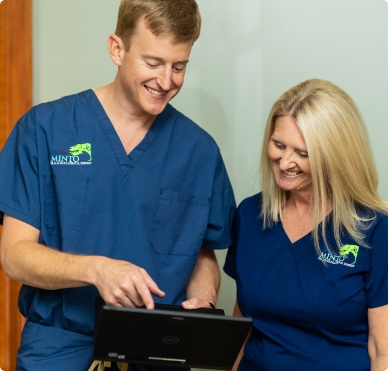Recovery from Tooth Extraction
Following the extraction of a tooth, you will need to allow your mouth some time to rest and recover. During this time, it is important to follow a few basic guidelines to prevent infection, to keep pain at bay, and to enable you to bounce back as quickly as possible. Here are a few guidelines for the tooth extraction recovery process.
How Long Should I Take Off from School or Work?
Following any kind of surgical procedure, it is important to allow your body some time to regather its strength. For those who have a tooth pulled, we recommend resting and relaxing for at least the first 24 hours and abstaining from vigorous exercise for at least three to five days. Most patients will want to take a couple of days off from school or work; after that, you will likely feel prepared to return to your normal activities. One way to maximize your rest time is to schedule your extraction for mid-week, take a couple of days off, then enjoy some further relaxation over the weekend.
How Can I Manage Pain Following a Tooth Extraction?
You can anticipate a little bit of soreness following a tooth extraction. The pain will likely begin a few hours after your procedure, once the sedation starts to wear off, and will be at its worst over the first 24 to 48 hours. Most patients report that the pain recedes within the first week or so.
For some patients, the pain is mild enough that it can be managed with over-the-counter remedies. Be sure to ask your oral surgeon about the OTC medications that are most highly recommended. For those who need prescription pain medications, your surgeon can provide one; be sure to take only as directed.
What About Bleeding and Swelling?
Following your extraction, the incision site will be wrapped in a gauze bandage to minimize bleeding. You can take it off after an hour, but you will likely have some additional bleeding off and on for the first day. You can curb the bleeding by biting down on gauze pads, switching them out if they become blood-soaked. If you have significant bleeding past the first day, call your oral surgeon.
Swelling can be expected within the first week. A simple way to mediate the swelling is to apply an ice pack, use it for 15 minutes, then set it aside for a while.
When Can I Eat Following a Tooth Extraction?
You are cleared to eat within an hour of your extraction after you remove the gauze bandage. For the first 24 hours, it is best to stick with soft foods and liquids. We would also recommend that you avoid anything hot or spicy, as these foods can cause inflammation. A few examples of what you can eat following a tooth extraction include:
● Smoothies
● Yogurt
● Ice cream
● Cold soup or broth
● Applesauce
● Mashed banana
● Mashed potatoes
Additionally, avoid drinking from a straw; the suction can cause discomfort or damage to your incision site.
Over the course of the first week, you can gradually shift back to a normal diet as you begin to feel more comfortable. Take it easy, however, and remember that the area where you had a tooth pulled is going to be a bit tender.
What Else Can I Do to Ensure a Smooth Recovery?
We would always recommend that our patients abstain from smoking or using any tobacco products, which can slow down your body’s healing abilities. Additionally, rinse your mouth with salt water periodically throughout the day, which can help you minimize your risk of infection.
If you have any specific questions about recovering from a pulled tooth, do not hesitate to contact Minto Oral and Maxillofacial Surgery at any time. We are always glad to talk with patients about the steps they can take to remain comfortable and to expedite their recovery.







 Meet Your Oral Surgeon
Meet Your Oral Surgeon




